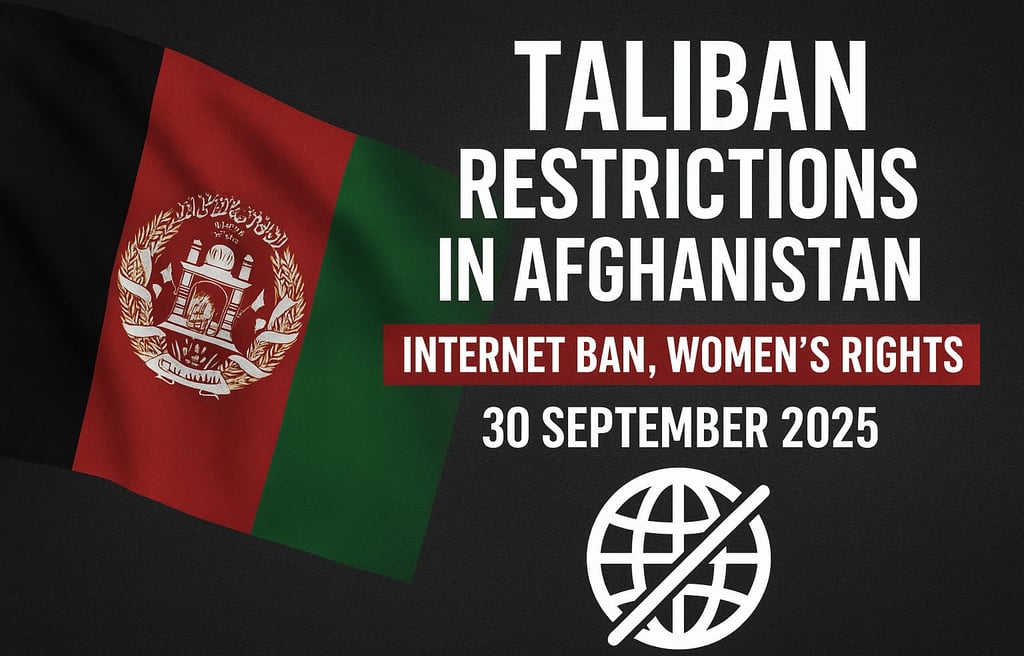Taliban Tighten Restrictions in Afghanistan | Internet Ban, Women’s Rights Curbed | 30 Sept 2025 Latest News
On 30 Sept 2025, the Taliban imposed nationwide internet bans, restricted women’s rights, and shut down academic programs. Full details in latest news update.
Raja Awais Ali
9/30/20251 min read


Taliban Tighten Restrictions in Afghanistan, Internet Shutdown and Women’s Rights Curbed
On 30 September 2025, the Taliban government in Afghanistan imposed a new wave of restrictions, including a nationwide suspension of internet and severe limitations on mobile networks. Officials did not provide a clear explanation, claiming the measure was aimed at stopping “immoral activities.” Previously, fiber-optic internet had already been cut in northern provinces including Kunduz, Badakhshan, Baghlan, Takhar, and Balkh, but the blackout has now been extended nationwide. While mobile data services have not been completely disconnected, their speed and accessibility have been heavily restricted.
Alongside the internet blackout, the Taliban ordered universities and libraries to remove books authored by women and terminated 18 educational programs related to democracy, human rights, and gender studies. They also banned chess, labeling it as an “un-Islamic game.” Moreover, in earthquake-affected regions, female aid workers were barred from traveling or participating in relief efforts without a male guardian.
These measures represent a direct assault on human rights and freedom of expression. The shutdown of internet and communication services has paralyzed daily life across Afghanistan. Journalism, education, healthcare, commerce, and banking have all been deeply disrupted. Women and students, who rely heavily on online platforms for education and communication, are among the most severely affected.
Analysts believe these policies reflect the growing influence of hardline factions within the Taliban who view modern technology and open social interaction as threats to their centralized control. The restrictions on information flow are widely seen as an attempt to further isolate Afghanistan from the outside world.
The international community has strongly condemned these actions. The United Nations, human rights organizations, and multiple countries have urged the Taliban to lift the bans and restore access to free information. The United States and European nations labeled the move a grave violation of fundamental human rights.
These latest restrictions are consistent with the Taliban’s pattern of governance, which has consistently curtailed women’s rights, freedom of expression, and social inclusion. If such policies continue, Afghanistan risks deeper isolation from the global community while its citizens face worsening hardships in meeting even basic needs.
Stay informed with the latest national and international news.
© 2025. All rights reserved.